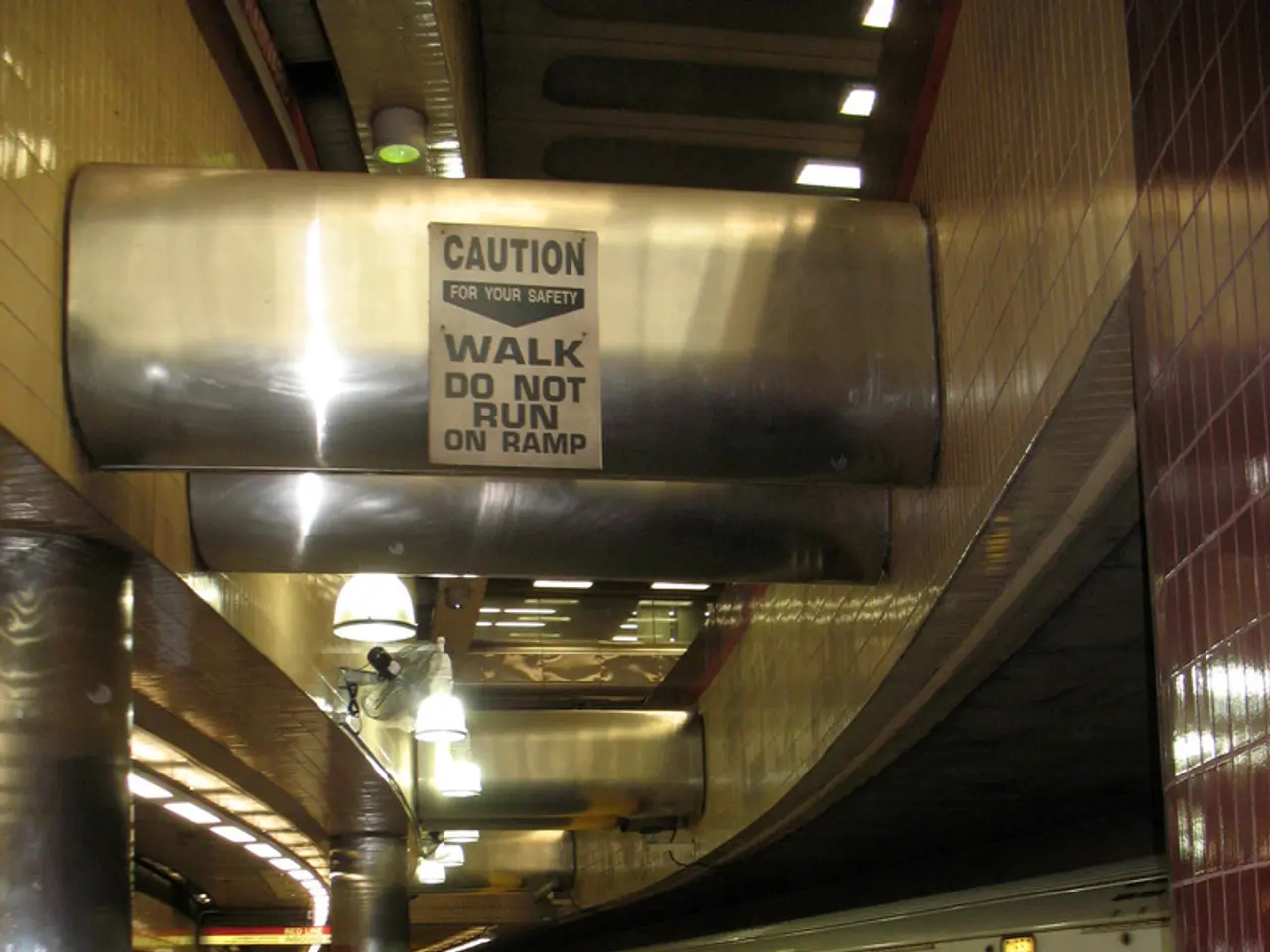Automakers in Germany advocate for the government to rescind the prohibition on selling combustion engine vehicles
The German automotive industry association, VDA (Verband der Automobilindustrie), has proposed a significant shift in the European Union's (EU) plans to phase out new cars with internal combustion engines (ICE). The VDA is advocating for a de facto reversal of the EU's 2035 ban to allow the continued sale of combustion engine vehicles powered by biofuels and other alternative fuels [1][2][5].
The VDA's stance is based on the belief that this approach would support a more gradual and flexible transition while recognizing the role of renewable fuels in decarbonizing transport. The organisation argues that renewable fuels can contribute effectively to emission reductions, especially for certain vehicle categories and regions where electric vehicle infrastructure or adoption faces challenges [1][2].
The VDA's key points include the advocacy for allowing combustion engine vehicles fueled by renewable biofuels and synthetic fuels, which can significantly reduce CO2 emissions compared to fossil fuels. They also push for adjusting fleet limits to keep the development and production of combustion engines in Europe, where they are technological leaders [1][2].
The VDA's draft paper also calls for softening interim fleet emission targets and allowing the registration of certain long-range plug-in hybrids after 2035. However, it is important to note that the ban on the sale of new combustion engine cars from 2035 onwards is EU law and cannot be reversed single-handedly by Germany [6].
The German government has announced a policy package to revive economic growth and make progress in the sluggish roll-out of electric cars. This includes tax write-offs for new company EVs of up to 75 percent of the purchasing price [3]. However, the SPD has signaled they would resist the adoption of the VDA's position, with Tiemo Wölken stating that the proposals would be detrimental to planning and investment security for companies [4].
Environmental think tank Agora Verkehrswende warns that adopting the VDA's draft proposals could lead to a significant slowdown in the electrification process. Meanwhile, Transport & Environment (T&E) warns that the VDA's plans could result in avoidable emissions of 500 to 1,400 million tonnes of CO2 emissions [1][2]. Other member state governments, including those of the European Parliament's centre-right European People's Party (EPP), have also expressed a desire to lift the ban [1].
The VDA's proposal is not a total rejection of climate goals but an attempt to preserve technology diversity and support the role of biofuels and synthetic fuels in achieving lower carbon transport, rather than an absolute elimination of combustion engine vehicles by 2035 [1][2][5]. The head of the VDA, Hildegard Mueller, stated that a limited number of new combustion engines could still be registered after 2035 [1]. Kerstin Andreae, leader of energy industry lobby group BDEW, states that Germany's EV charging infrastructure is well-developed and primarily lacks vehicles to make use of it [7].
References: [1] https://www.reuters.com/business/autos-transportation/germanys-vda-calls-de-facto-reversal-eu-2035-combustion-engine-ban-2021-05-13/ [2] https://www.bloombergquint.com/onweb/germany-s-vda-proposes-de-facto-reversal-of-eu-ban-on-new-combustion-engine-cars [3] https://www.reuters.com/business/autos-transportation/germany-unveils-100-billion-plan-boost-electric-car-industry-2021-05-06/ [4] https://www.reuters.com/business/autos-transportation/germanys-vda-calls-de-facto-reversal-eu-2035-combustion-engine-ban-2021-05-13/ [5] https://www.transportenvironment.org/news/german-auto-industry-calls-de-facto-reversal-eu-2035-ban-new-combustion-engine-cars [6] https://www.reuters.com/legal/regulatory/eu-court-rejects-germanys-bid-delay-phase-out-diesel-cars-2021-05-14/ [7] https://www.reuters.com/business/autos-transportation/germanys-vda-calls-de-facto-reversal-eu-2035-combustion-engine-ban-2021-05-13/
- The German automotive industry's proposal for a de facto reversal of the EU's 2035 ban on new cars with internal combustion engines is advocating for a continued sale of combustion engine vehicles powered by renewable biofuels and synthetic fuels, which could contribute effectively to emission reductions.
- The business and political landscape is faced with opposition to the VDA's plan, as environmental think tanks and other member state governments have expressed concerns that adopting the VDA's proposals could result in avoidable emissions of 500 to 1,400 million tonnes of CO2 emissions and slow the electrification process.
- Politics and finance play a significant role in the German government's plans to revive economic growth and address the sluggish roll-out of electric cars, with policies such as tax write-offs for new company electric vehicles, while the role of renewable fuels in energy and the decarbonization of transport remains a contentious issue within the industry and general-news discourse.




